 Finding Felix
Finding Felix
by Jo Platt
Kindle Edition, 258 pg.
Canelo, 2018
Read: August 28 – 29, 2018

‘Head buried in the sand,’ she said. ‘Typical Dot.’
I frowned but didn’t feel able to challenge the statement. I knew she had a point. My tendency to refuse to confront personal challenges and consider their consequences until my nose was pressed up against them was undeniable. In my defence, it was an approach that on the whole seemed to work reasonably well. It cut down considerably on the amount of time spent worrying and stressing about things, and, nine times out of ten, a last-minute fix was just as good as a lengthy, considered and, in my opinion, tortured approach.
However, like it or not, I had to admit that this was not one of those times. This was definitely the one in ten.
This is all thanks to Ian Patrick — if he hadn’t tweeted about this book on Saturday, I wouldn’t have heard about — much less read — Jo Platt’s book (or Jo Platt, come to think of it). The term “romcom” just didn’t seem like the kind of thing I should see coming from him. So I clicked the link, read about the blurb and decided to give it a whirl. There seemed very little chance that anyone would find a dead body, kill anyone or have to defend their lives — which seemed like a good change of pace.
I’m glad I took the shot on this — as you can see from the above, Dot Riley doesn’t think things through too often. And it probably seemed like a good idea to assure her dying grandmother (Nanny Flo) that, no, she’s not single; there’s no reason to worry about her at this time — in fact, she’s dating that old friend from childhood that the whole family loved so much. But faster than you can say Norah Ephron, Nanny Flo makes a miraculous recovery — and she credits the news about Felix for saving her life. Before she realizes it, months have slipped away and it’s time for Dot’s sister’s wedding. Which, naturally, her boyfriend will be attending with her.
Dot has a couple of choices here: come up with a lame excuse for Felix’s absence; telling her family the truth, which let’s be honest, would possibly kill Nanny Flo; or . . . she could track down the man she hasn’t seen since they left for university and get him to go along with the story. Because of the genre, it’s easy to guess which she’ll go for.
She tracks him down and he agrees to go to the wedding with her. You halfway expect them to hit it off immediately, or at least think about it — but Felix doesn’t seem that interested in anything about Dot as a person; and Dot is so thrown by the ridiculousness of her request and how Felix changed (as people do) in the decade or so since she’s seen him that she isn’t really that capable of getting past any of that.
You can pretty much plot out the rest of the book for yourself — but that doesn’t mean that Platt doesn’t have a curveball or two to throw at the reader. And even the parts you do see coming are handled with such aplomb, wit and charm that you’re not sitting there rolling your eyes and saying “yeah, knew that was going to happen.” Rather, you grin and admire how she did it.
The key, obviously, to all this are the characters, in particular, Dot. Platt gives us a great group of characters — whether around for a few paragraphs or for the entire book. Dot’s a mess of a character. But in a good way — she’s tardy, she’s impulsive, she’s frequently unintentionally thoughtless, and she has an uncanny ability to ruin any encouragement she tries to give anyone by poor word choice. But she’s got a big heart and great taste in friends. Thankfully, she’s got a good sister and an equally good best friend/business partner who can keep her from mucking everything up too badly.
Felix is . . . Felix is a good character, too. I don’t think I can say much more without spoiling some of the work Platt did in revealing him. So we’ll move on to . . . Dot’s mother? She tries really, really, really hard not to meddle in her daughter’s lives. Well, she thinks she does, anyway. She loves them, and wants the best for them — and will do everything she can to make sure that her daughter’s do what they need to do get their lives to work out for the best (whether or not that’s what her daughters actually want).
Dot’s father is a hidden gem — possibly the most valuable player here. He’s funny, he’s put-upon, he’s the voice of reason (and humor) working to prevent her mother’s emotional excesses from steamrolling their daughters and their daughter’s significant others.
The relationships that Dot has with her sister and partner — and their husbands — are just great. I’d have easily enjoyed another 80-100 pages of filler conversations between any of them and Dot just to enjoy their interactions. They are cozy, fun, and honest in the way you only can be with those closest to you.
This was silly, it was earnest, it was sweet, it was fun — I laughed out loud a couple of times, and even when I didn’t do that, I appreciated the humor. If you’re willing to buy into the conceit and genre (and I know some of you who wouldn’t be), I can assure you — you’ll have a good time.
Oh, yeah, and there are no killings, attempted killings or lesser crimes committed at all. It’s good to remember that you don’t need any of that to get a good story.
—–



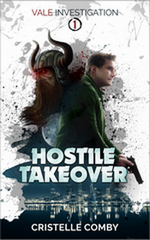
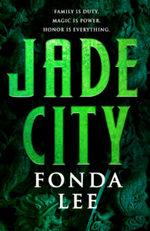

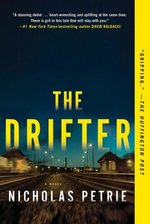


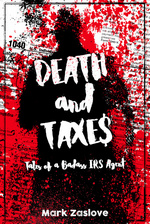
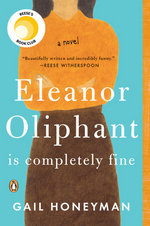
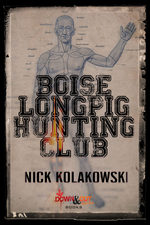

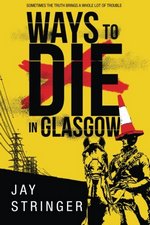


 Read a book with a child narrator.
Read a book with a child narrator.